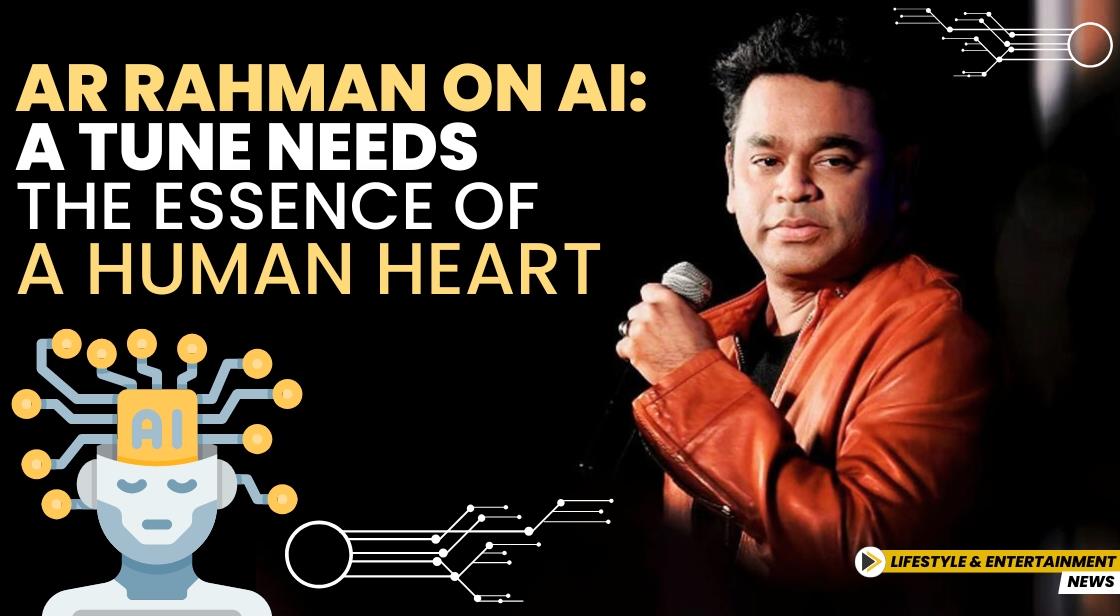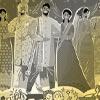AR Rahman on AI: A Tune Needs the Essence of a Human Heart

News Synopsis
Renowned composer AR Rahman has shared his insights on the intersection of music and Artificial Intelligence (AI). While he acknowledges the capabilities of AI in certain areas of music production, he emphasizes the irreplaceable value of human creativity and emotion in the art of songwriting and performance.
AI as a Tool, Not a Replacement
In a recent interview with The Week, Rahman expressed that he does not oppose the use of AI in music. He sees AI as a beneficial tool, particularly in the mastering process of music. However, he firmly believes that the creation of a tune requires the depth and sensitivity of a human heart and a philosophical mind. "AI helps in the mastering process, but creating a tune still requires a human heart and philosophical mind," he stated, underlining the importance of human touch in artistic creation.
The Future of Music and Live Performances
Rahman predicts a future where real musicians will reclaim the stage, performing live with traditional instruments like guitars. He believes that the imperfections in human performance will be increasingly appreciated in a digital age. "I feel that, with digitization, we will value the flaws even more… 'Oh, it's real, see? He is out of tune,'" he remarked. This perspective highlights a yearning for authenticity in music, contrasting with the often-polished nature of digitally produced sounds.
AI: A Double-Edged Sword
When discussing AI, Rahman used the metaphor of "Frankenstein" to describe its capabilities. He pointed out that AI is often trained on a vast collection of existing knowledge, which can sometimes be perceived as "stolen" creativity. While he acknowledges AI's potential as a starting point in the creative process, he cautions against over-reliance on it. "AI is good as a starting tool. I use AI for posters. Sometimes the result surprises you, and sometimes it is very bad," Rahman explained. In cases where the output is unsatisfactory, he resorts to using a combination of Photoshop and AI to achieve the desired results.
Collaboration with Mani Ratnam
During the interview, Rahman also reflected on his long-standing collaboration with acclaimed Tamil director Mani Ratnam. Their partnership has produced several iconic films, including Roja, Bombay, Yuva, and Guru. Rahman expressed admiration for Ratnam's directorial style, stating, "The more trust you have in someone, the more you torture yourself." He elaborated that some directors are very clear about their visions, which leads to more efficient projects. However, with Ratnam, the process is more introspective. "He will say, 'Give me something,' and you wonder and torture yourself to give him something inspiring. Meanwhile, he quietly enjoys it, in a good way, of course," Rahman shared.
The Essence of Music
AR Rahman’s reflections on AI and its role in music highlight a broader conversation about the future of creativity in an increasingly digital world. He advocates for a balance where technology serves as an aid rather than a replacement for genuine human expression. As artists navigate the evolving landscape of music production, Rahman’s insights remind us of the irreplaceable value of the human spirit in the arts.
The Legacy of AR Rahman
As a composer, Rahman has left an indelible mark on the music industry, blending traditional sounds with contemporary influences. His ability to adapt to changing technologies while maintaining the core of human creativity sets him apart as a visionary in the field. Through his collaboration with filmmakers like Mani Ratnam and his thoughts on AI, Rahman continues to influence the narrative of music and its future.
Final Thoughts
AR Rahman's stance on AI serves as a reminder that while technology can enhance creativity, it cannot replicate the emotional depth and philosophical insight that only human artists can bring to their work. The future of music, according to Rahman, lies in the hands of passionate musicians who are willing to embrace both the challenges and opportunities presented by technology. As the industry evolves, the true essence of music will always be rooted in human experience and emotion.
You May Like









